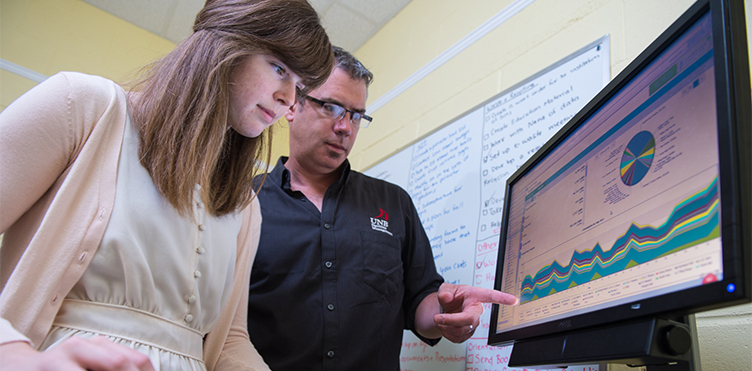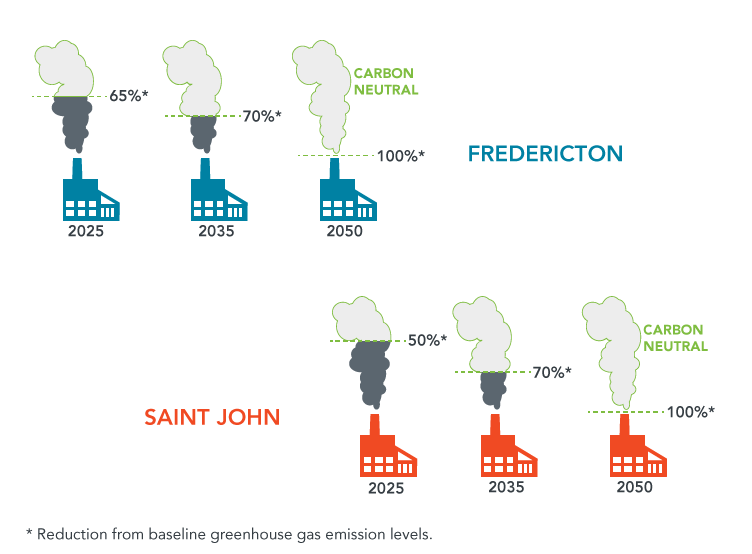Baselines and targets

Vision for a carbon neutral UNB in 2050
Through the Sustainability Tracking Assessment and Rating System (STARS), information collected will provide insight on UNB's areas of progress and improvement.
STARS' framework recommends using an average of three consecutive years of data when calculating a baseline.
- UNB Fredericton: 2007-2010
- UNB Saint John: 2008-2010
UNB selected these years for UNB Fredericton due to the significant work on campus since the establishment of the Energy Management Program in 1996. This baseline allows the campus to account for some of the investment while pursuing challenging targets that require UNB to make significant changes in order to reach its goals.
The baseline for UNB Saint John features only two years' average due to insufficient data.
Two campuses, two modes of operation
UNB per campus targets to reduce greenhouse gas emissions:

UNB Fredericton produces its own steam to heat the campus' buildings. In Saint John, the campus purchases steam from the nearby hospital.
The reduction targets are different for UNB Fredericton and Saint John, but the plan remains bi-campus and both campuses share the common target of becoming one carbon neutral university by 2050.
Monitoring and reporting
UNB Sustainability monitors and reports its targets and strategies and plans on releasing a mid-point review of the actions completed and the remaining tasks while outlining a path forward.
At the conclusion of the plan, a final report will outline the successes within the plan and UNB Sustainability will release a new plan to guide UNB to the 2050 carbon neutral goal.
Key performance indicators
The KPI reported to the Climate Change Action Plan Committee provide an update on the progress towards meeting strategies and actions. They are aligned with the overall target of the institution.
UNB's greenhouse gas emissions (in tonnes of CO2e) will be reported to the Climate Change Action Plan Committee once a year.
Progress report on strategies and actions will be reported to the CCAP committee at the midway point and at completion in 2025.
The Climate Change Action Plan Committee plays a major role in the monitoring of UNB Sustainability’s progress towards achieving the outlined strategies and goals. They will continue to meet three to four times per year, assessing progress and giving strategic guidance when necessary.
